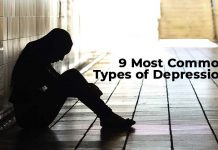
If you are fidgeting with your phone beyond 10 pm, you may be inviting mental health troubles like mood disorders, a new research claims.
According to a new study, conducted by researchers at the University of Glasgow, when the 24-hour body clock gets disrupted by doing things like being active on social networking sites at midnight or waking up in the night to prepare a cup of tea can increase the likelihood of developing bipolar disorder and depression. It is also linked to lowered happiness quotient and dissatisfaction related to wellbeing. These people report higher intensity of loneliness.
Circadian rhythms are changes in behavior and physiology that repeat over a period of 24 hours, such as the cycle of waking up and sleeping, and the patterns of release of hormones. These occur in animals as well as plants and are key to maintaining humans’ health, which ultimately ensures both mental and physical wellbeing.
Professor Daniel Smith, senior study author, said that the 10 pm benchmark would give adults enough time to unwind before sleeping so that they can set a regular sleep pattern.
What to be noted is that it is not only the disrupted sleep that can disturb the balance of circadian rhythms. It is important to remain active in the daytime and at rest during the night. Hence, even evening gym does not do much good to you.
Smith added that during winters, you should step out in the morning and get fresh air. It is as important as getting a good night’s sleep. So, keep your mobiles at bay during nighttime. There’s a lot of truth in the saying by Benjamin Franklin – “Early to bed, early to rise makes a man healthy, wealthy and wise.”
Some earlier studies have established an association between circadian rhythm disruption and bad mental health condition, but, almost all were done on a small scale.
In this study, researchers examined 91,105 subjects for their daily rest activity rhythms. This is also called relative amplitude. Those, who had lower relative amplitude, had more likelihood of developing mental health conditions; irrespective of the sex, age, lifestyle, trauma history or education.
Prof Daniel said that the study is important on a wider scale because the majority of the people are living in the urban areas. This increases the risk of disrupted circadian rhythms and consequently, poor mental health conditions.










